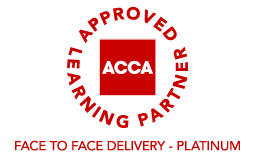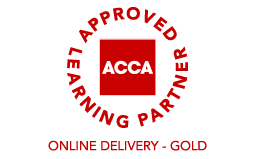What Are the Merits and Demerits of Accounting?
Accounting is the process of recording financial information pertaining to a business. This includes summarizing, analyzing and reporting transactions for use by internal and external parties, such as stakeholders, oversight agencies, tax collection entities and regulators.
It’s a key function for almost any business which, in turn, made accountancy as a career path an in-demand, stable and financially rewarding one.
If you’re planning to follow in the footsteps of millions of professionals who made this field their vocation, you would do well to know that there are many advantages and disadvantages of accounting for businesses.
In this article, we will examine the merits of accounting and its shortcomings for organizations so you can decide if this is the right career choice for you.
What Are the Advantages of Accounting?
Accounting’s primary function is to provide insight into a company’s financial standing and performance to assist stakeholders in making informed decisions. The following are a few ways accounting makes this possible:
1. Recording Business Transactions
All businesses have daily financial transactions like sales, purchases, expenses and more. Accurately recording and maintaining these transactions is among the top benefits of accounting because it offers reliable information about a company’s financial health at all times.
Such transactions go on to become part of pertinent financial statements, such as balance sheets, income statements and cash flow reports that relay the big picture of a business’s position to investors, creditors and shareholders.
2. Managing Expenses
Another one of the merits of accounting that’s crucial for businesses, especially in today’s highly volatile economic climate, is that it monitors and controls expenditures.
It allows the consistent tracking and categorization of expenses and, in so doing, enables organizations to identify opportunities to save costs, eliminate wasteful spending and allocate resources more efficiently.
3. Assisting in Planning and Budgeting
Effective planning and budgeting often rely on analyzing past financial transactions for trends and patterns, which are used to project and anticipate future outcomes and set attainable goals that align with overall company objectives.
For this to work, businesses need accurate and up-to-date financial records only accounting can provide.
4. Facilitating Financial Analysis
Part of accounting involves the preparation of financial statements, which provide the information needed to perform intricate analyses like cost-benefit, ratio, cash flow and trend analyses.
Based on the results of such assessments, stakeholders can adequately evaluate the company’s performance and direct its future course.
5. Meeting Legal and Regulatory Requirements
Proper accounting and financial reporting typically follow specific standards, such as GAAP and IFRS. Abiding by such reporting requirements depicts an accurate picture of a company’s finances and ensures compliance with applicable laws and regulations.
This is one of the most impactful benefits of accounting because it prevents businesses from incurring costly penalties, sanctions or even legal action that could harm their reputation and bottom line.
6. Detecting and Preventing Fraud
Accounting helps businesses detect abnormalities, suspicious activities, and possible fraud threats through systematic checks and built-in internal controls such as regular audits, financial reconciliations and segregation of duties.
In this way, it reduces the risk of fraud, theft or embezzlement within the company, safeguards its assets and preserves its integrity.
7. Enhancing Tax Compliance
Planning and preparing taxes involves substantial accounting work. By maintaining precise financial records, businesses can accurately report and file their income, expenditures, assets, liabilities and more to the relevant tax authorities, ensuring compliance and reducing the likelihood of errors and penalties.
Additionally, following good accounting practices enables businesses to spot opportunities for tax savings like deductions and credits.
What Are the Disadvantages of Accounting?
Despite its many advantages, accounting does have some drawbacks, which are worth considering:
1. Estimate-based Accounting
Some financial transactions like asset depreciation, bad debt write-offs and contingent liabilities rely on estimates rather than factual numbers since the exact value might be impossible to determine.
Even though these estimates are an accepted practice and are based on sound reasoning in most cases, because they are subjective, they might skew the accuracy of financial information.
2. Money-centric Reporting
Qualitative elements, such as customer satisfaction, employee turnover, reputation and other business assets can’t be quantified or measured in monetary terms. As such, they are not incorporated into financial reporting, however big their impact may be on a company’s operations.
3. Different Accounting Methods Application
While there are internationally recognized accounting standards, companies can still use different methods and principles to record their transactions. For example, there are various routes to treating revenue, calculating asset depreciation, inventory valuation and more.
This can make it challenging to compare the financial performance of two organizations in the same industry.
Accounting as a Career
By now, you should have a clear idea of what the advantages and disadvantages of accounting are, but what about as a career choice?
At its core, accounting is a dynamic profession that continuously evolves to meet the changing needs of businesses. It’s perfect for people with excellent analytical skills, a knack for numbers and an eye for detail.
If you know that’s you, contact us to find out how you can jumpstart your career in accounting today.



